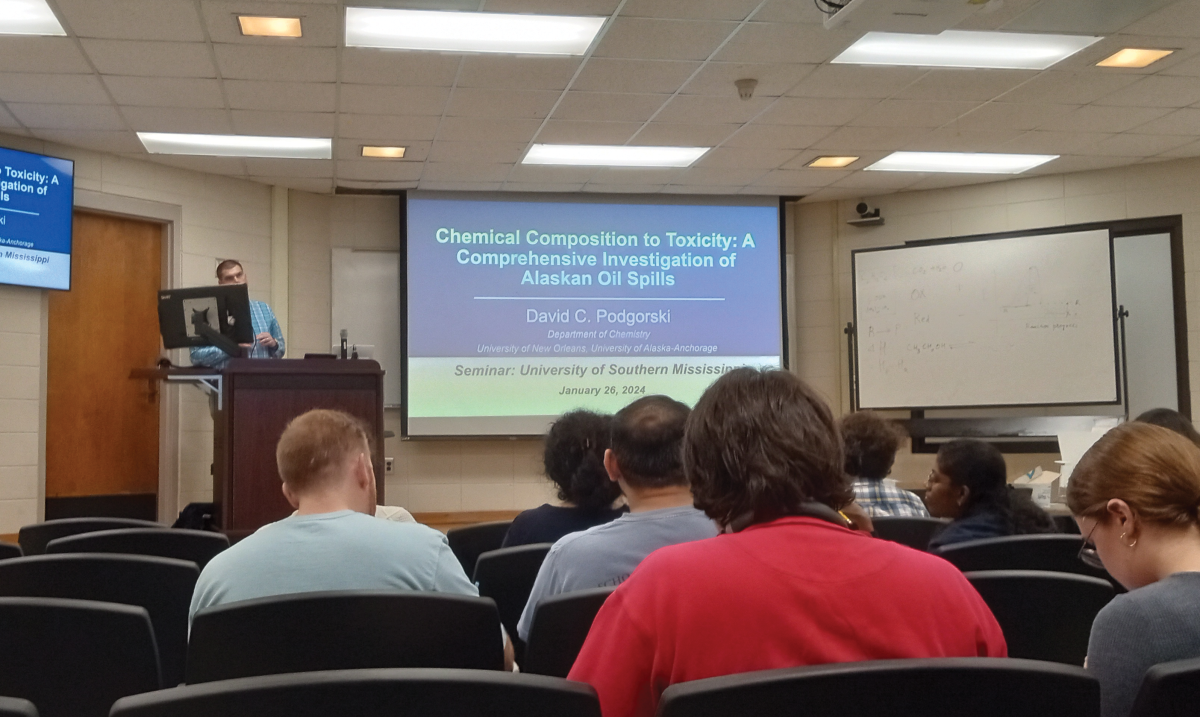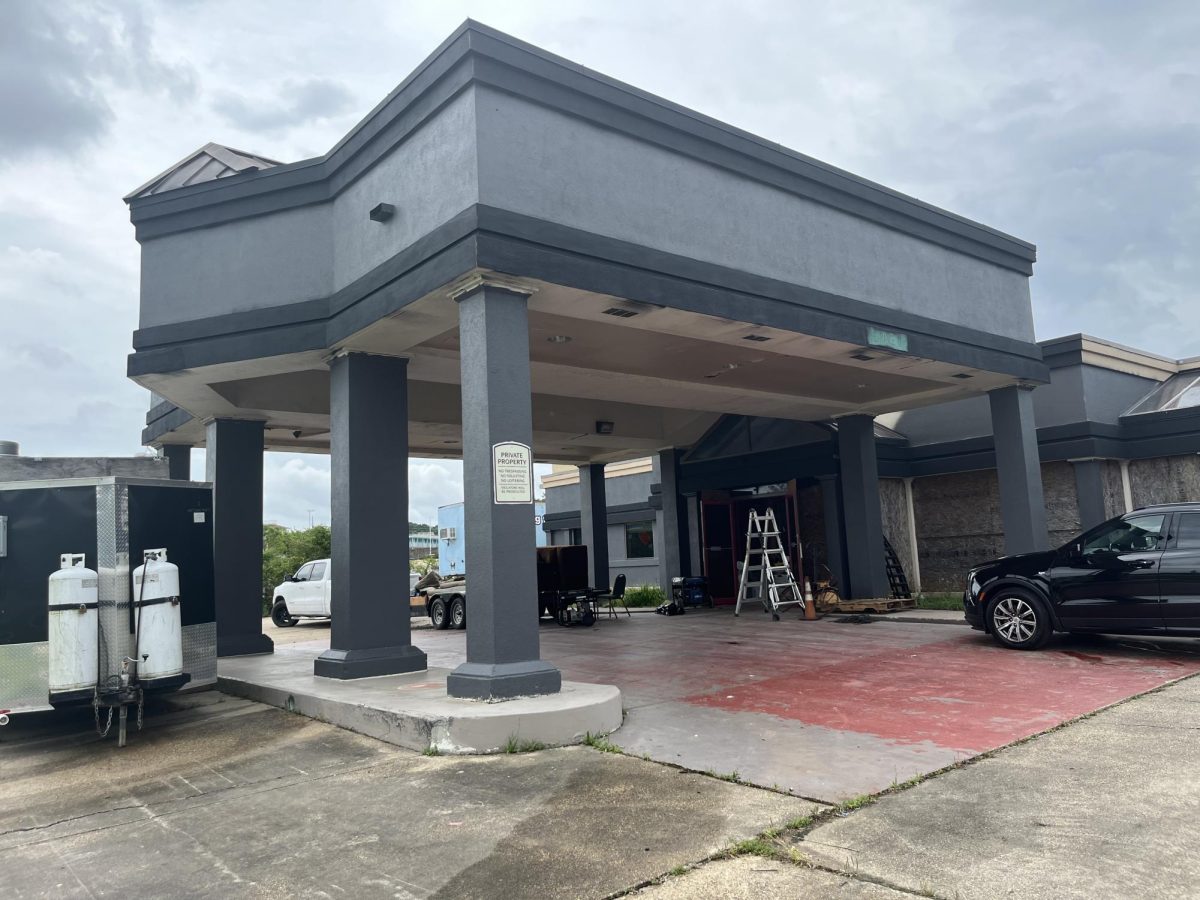On Jan. 26, Dr. David Podgorski, a chemistry professor at the University of New Orleans, gave a lecture titled ‘Chemical Composition to Toxicity: A Comprehensive Investigation of Alaskan Oil Spills’ in the Bobby Chain Technology Building at USM. The seminar was organized by Leah Case from the Graduate Student Organization. In his lecture, Podgorski talked about the formation of oil, the risk assessment of oils, and how the toxicity of oil changes as it degrades in water. He also mentioned that the research done on Alaskan oil spills might be heavily biased because Exxon is carrying out the most research on the subject.
On March 24, 1989, the Exxon Valdez oil tanker spilled 11 million gallons of crude oil into the sea after running aground in Prince William Sound, Alaska after the captain operated the ship while he was intoxicated. This led to an estimated death of a quarter million seabirds, nearly three thousand sea otters, billions of salmon, and many other species of animals. That incident, referred to as the Exxon Valdez oil spill, is the second-largest oil spill in U.S. history. The water in the area is still not clean and environmental chemists are trying to come up with new solutions to clean up the spill to this day.
According to Podgorski, petroleum, which is already a chemically complex structure, turns more complex after it spills into water. Some components of petroleum which are water-soluble dissolve in water, which forms some volatile compounds that evaporate. That leaves behind a chemically complex structure that sinks to the bottom of the ocean. Most of the compound in the structure is unresolved complex, meaning that chemists do not know much about the compound. Regulation laws are hard to make when chemists do not know how toxic that matter can be.
Podgorski, who is also working on the oil spill project, questions how much of the research done on the subject is valid.
“One of the things that I find interesting is that a lot of the oil spill research done currently is sponsored by the responsible parties, which are the petroleum companies themselves,” Podgorski said. “They are the ones who are responsible for having oil spills but they are also the ones that do the research on the oil spills so it always seems like a contradiction, a bias.”
While Exxon claims that they have been trying to prevent another accident like this and regulates its vessels better now, Exxon Valdez operated under different names until 2012. The vessel remained as an oil tanker until 2008 before it was repurposed as a cargo ship. During its time in the water, it was involved in another major accident in 2010 where it collided with another ship which caused severe damage to both ships.
The information that Podgorski provided about Exxon doing most of the research that helps form regulation laws is very hard to find on the internet, making the information inaccessible to most people. That raises the question of how much information about world issues is really accessible to an average person. This also raises the controversy about what an average person can realistically do about environmental damage. Even if Exxon was conducting unbiased research, this raises the question of how many other companies are doing research on products of their own design.
































